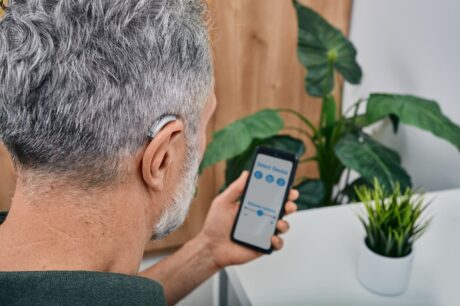Hearing loss in children is more common than many people realise, and its impact on a child’s development can be significant. Children with hearing loss often face unique challenges in learning, communication, and social interactions. Early identification and intervention are crucial in helping these children reach their full potential. This guide aims to help parents and educators understand and support children with hearing loss.
Understanding the Unique Challenges
Communication Barriers
The first signs of hearing loss often include not reacting to any sounds. As such, one of the primary challenges children with hearing loss face is communication. Understanding speech, especially in noisy environments like classrooms or playgrounds, can be incredibly difficult. Even with hearing aids, background noise can make it challenging for children to follow conversations, which can lead to frustration and misunderstandings. Additionally, expressing themselves clearly can be difficult, impacting their ability to communicate effectively with others.
2. Academic Struggles
Hearing loss can impact a child’s learning experience. In the classroom, children with hearing loss may struggle to understand instructions, follow discussions, or participate in group activities. This can lead to reduced concentration, academic delays, and lower performance. Without support, these challenges can create a gap between a child with hearing loss and their peers. Hearing loss can also contribute to cognitive impairment, affecting the child’s ability to process information efficiently.
3. Social and Emotional Impact
Children with hearing loss may struggle socially and emotionally. Difficulty in understanding and participating in conversations can lead to feelings of isolation and exclusion, which can negatively impact their self-esteem. They may find it hard to make friends or join in on group activities, further contributing to feelings of loneliness and frustration. These struggles underscore the importance of understanding and support from both parents and educators.
Fostering Communication
Supporting a child with hearing loss requires a proactive approach to fostering communication skills.
Effective Communication Strategies
To help children with hearing loss communicate effectively, it’s important to use clear communication strategies. Face the child when speaking, as visual cues like facial expressions and lip movements can provide additional context. Use gestures or visual aids when appropriate, and speak at a natural pace without exaggerating your words. Patience and understanding go a long way in making children feel heard and supported.
Creating a Hearing-Friendly Environment
A supportive environment can make a big difference for a child with partial hearing loss. Reducing background noise, such as turning off unnecessary electronics, can help them better focus on the sounds they need to hear.
You can also consider improving room acoustics by using soft furnishings, carpets, or sound-absorbing panels that can further reduce distractions. Good lighting is also important for allowing your child to see facial expressions and lip-read.
Assistive Technologies
Assistive technologies can be very helpful in enhancing a child’s ability to communicate. Devices such as hearing aids, FM systems, and sound-field systems can improve the child’s access to sound and help them engage more fully in both classroom and social settings. These technologies work best when paired with supportive communication strategies and a conducive environment.
Supporting Language Development
Language development is crucial for children with hearing loss, as it forms the foundation for effective communication and learning. These can include:
Early Intervention
Early identification and intervention are key to ensuring children with hearing loss can develop their language skills optimally. At the first sign of hearing loss, parents should bring their child for a hearing test. Early support can include fitting hearing aids or cochlear implants and providing family-centred care to ensure that parents feel empowered to support their child’s progress.
Speech Therapy
Speech therapy helps children with hearing loss improve their speech and language skills. Therapists work with children to develop clearer speech and build a strong foundation in language, boosting confidence and communication abilities.
Reading and Literacy
Reading together is an effective way to support language development. Discussing stories and using visual aids or sign language can make reading engaging and help build literacy skills.
Promoting Social Inclusion
Social inclusion is essential for children with hearing loss to feel connected, confident, and valued. Parents and educators can take specific actions to foster social inclusion, as outlined in the following sections:
Building Self-Esteem
A positive self-image is crucial for children with hearing loss. Parents and educators can help by celebrating achievements, encouraging interests, and fostering pride. Acknowledging their efforts, no matter how small, can boost confidence.
Facilitating social interactions
Forming friendships is key to emotional well-being. Encourage small group activities where communication is easier, like art projects or games. Educators can pair children with supportive classmates who understand their needs.
Educating Peers
Raising awareness among classmates can promote empathy and inclusion. Educators can guide students on effective communication with peers who have hearing loss, such as speaking clearly and being patient. Understanding these challenges helps peers create an inclusive environment.
Empowering Children With Hearing Loss

Children with hearing loss face unique challenges, but with early intervention and ongoing support, they can thrive academically, socially, and emotionally. Parents and educators play a vital role in ensuring these children receive the understanding, tools, and encouragement they need. If you have concerns about a child’s hearing, don’t hesitate to reach out to a professional for a hearing test in Singapore. Listening Lab is here to provide support and resources, including information on where to buy hearing aids in Singapore, empowering children with hearing loss to reach their full potential.











